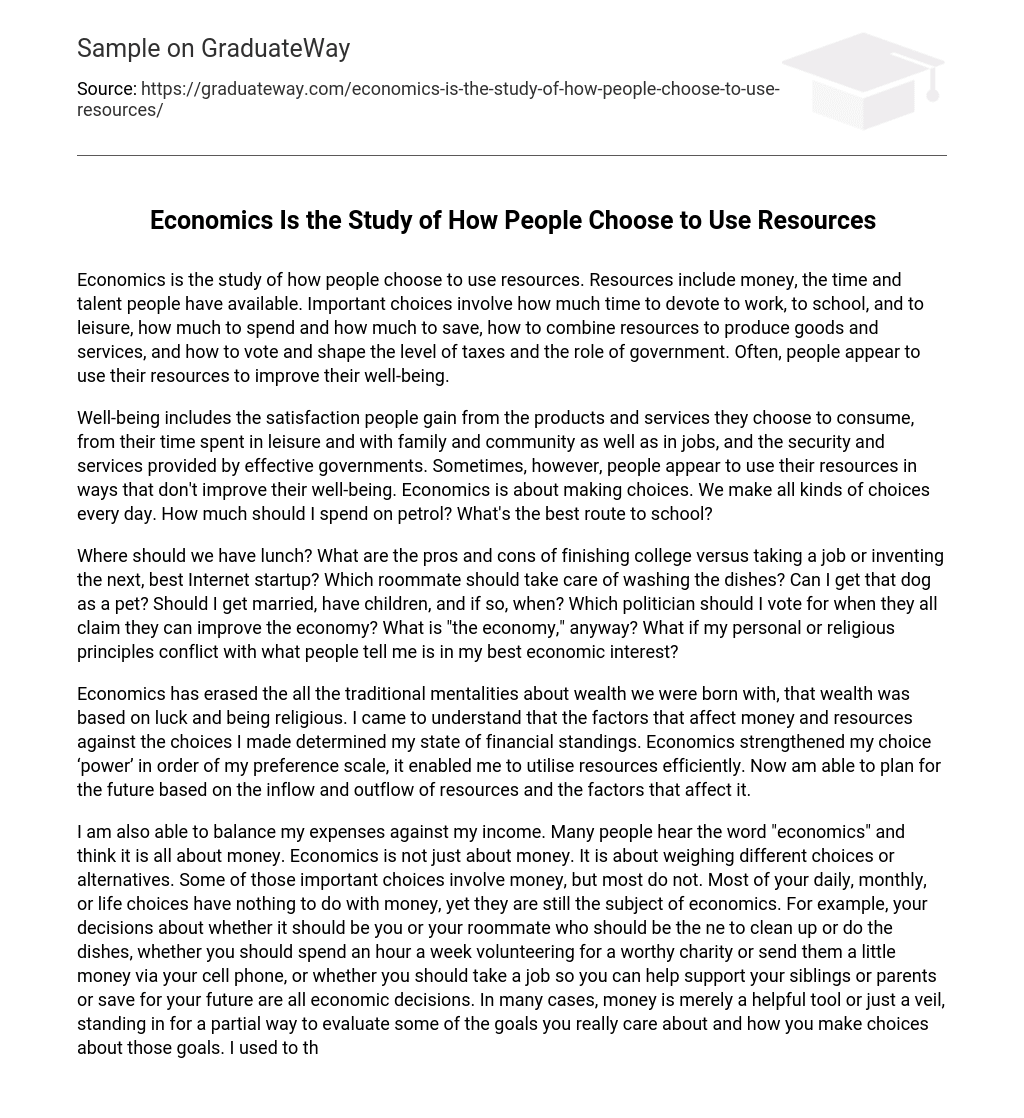Economics is the study of how people choose to use resources. Resources include money, the time and talent people have available. Important choices involve how much time to devote to work, to school, and to leisure, how much to spend and how much to save, how to combine resources to produce goods and services, and how to vote and shape the level of taxes and the role of government. Often, people appear to use their resources to improve their well-being.
Well-being includes the satisfaction people gain from the products and services they choose to consume, from their time spent in leisure and with family and community as well as in jobs, and the security and services provided by effective governments. Sometimes, however, people appear to use their resources in ways that don’t improve their well-being. Economics is about making choices. We make all kinds of choices every day. How much should I spend on petrol? What’s the best route to school?
Where should we have lunch? What are the pros and cons of finishing college versus taking a job or inventing the next, best Internet startup? Which roommate should take care of washing the dishes? Can I get that dog as a pet? Should I get married, have children, and if so, when? Which politician should I vote for when they all claim they can improve the economy? What is “the economy,” anyway? What if my personal or religious principles conflict with what people tell me is in my best economic interest?
Economics has erased the all the traditional mentalities about wealth we were born with, that wealth was based on luck and being religious. I came to understand that the factors that affect money and resources against the choices I made determined my state of financial standings. Economics strengthened my choice ‘power’ in order of my preference scale, it enabled me to utilise resources efficiently. Now am able to plan for the future based on the inflow and outflow of resources and the factors that affect it.
I am also able to balance my expenses against my income. Many people hear the word “economics” and think it is all about money. Economics is not just about money. It is about weighing different choices or alternatives. Some of those important choices involve money, but most do not. Most of your daily, monthly, or life choices have nothing to do with money, yet they are still the subject of economics. For example, your decisions about whether it should be you or your roommate who should be the ne to clean up or do the dishes, whether you should spend an hour a week volunteering for a worthy charity or send them a little money via your cell phone, or whether you should take a job so you can help support your siblings or parents or save for your future are all economic decisions. In many cases, money is merely a helpful tool or just a veil, standing in for a partial way to evaluate some of the goals you really care about and how you make choices about those goals. I used to think economics is all about “economizing” or being efficient–not making foolish or wasteful choices about how i spend or budget my time and money.
Economics is also about choice, scarcity, opportunity, and the impact of decision making on aspects of society. It is important to study economic because that way you learn how to use your money when buying new stuff like cars, house, clothes, goods, etc. For a lot of people money is everything and stands above love, family, and friends, they haven’t realized that money is also killing us by becoming selfish and tearing family apart because of them working more hours than they should just to earn more money.





